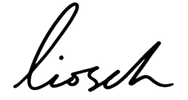- Blog
-
THESIS
- MISSION: Learning science by doing science.
- ARGUMENTATION: The missing piece to inquiry.
- IMPLEMENTATION: Teaching students to think like scientists
- FINDINGS: Student growth and response to argumentation frameworks
- REFLECTION: Co-generative thoughts for future practice
- ARTIFACTS: Data from the field and the study
- Portfolio
- About
|
This past year has been the most challenging time of my life. It’s also been a time of, by far, the highest growth. When I started my apprenticeship program at Penn’s Graduate School of Education (GSE), I’d already developed some nascent ideas on schools and science education. I knew that I loved learning about science; I loved practicing science; and I loved sharing my passion around scientific endeavors. I knew that I hated science classes; I was dissatisfied with the way science was taught when I myself was a student, and I knew wanted do something different. I wanted to fight against facts-driven, knowledge-driven, shallow, transient ways of learning science as I had experienced it. And I wondered—what if students worked through real problems through inquiry, modeling, and experimentation, just as actual scientists would? What if we steered away from a culture of memorizing textbooks and bubbling in scantrons to a culture of asking questions and investigating real issues in the world?
So, starting off as a student teacher, I had a broad vision for how I wanted to teach science: actually making it engaging for students, making it relevant to their lives, and developing scientific practices in addition to knowledge. Again, this was a broad vision—and an unfocused one. But after a year of experiences learning about and practicing education, I was able to develop this vision further. My coursework here at Penn GSE has been critical for this development, as well as my student teaching apprenticeship at Science Leadership Academy (SLA) in the School District of Philadelphia. Moving forward into my career as a science educator, I have three main goals:
It’s been a long year. Here’s my path:
3 Comments
|
AuthorHi! I'm a bio/chem teacher and M.S.Ed. student at the University of Pennsylvania. Archives
April 2018
Categories |
Proudly powered by Weebly
